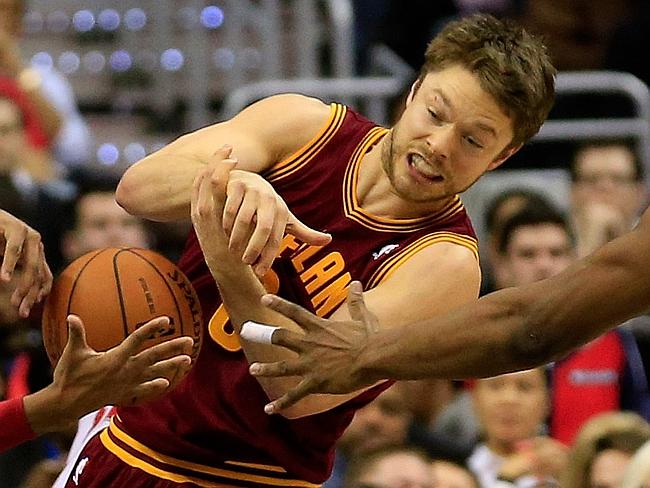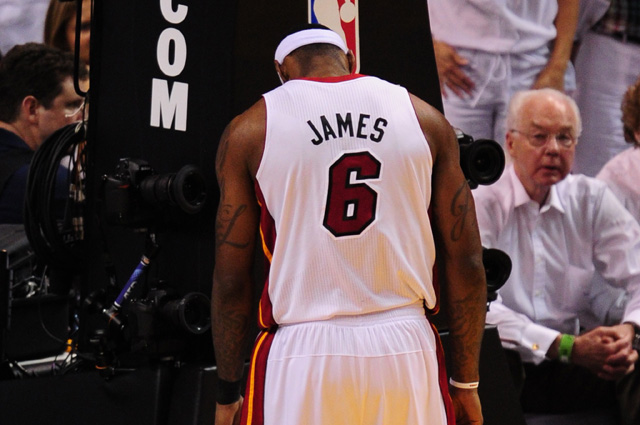“Whenever an art form loses its fire, when it gets weakened by intellectual inbreeding and first principles fade into stale tradition, a radical fringe eventually appears to blow it up and rebuild from the rubble. Beat poets in the ’50s, and rock musicians in the ’60s: they were poor and ignored and free from all expectations and inhibitions. They were body artists, playing with the palette of human endurance.”
Christopher McDougall
AS SOME OF YOU MAY KNOW, for the past few months I have had ambitious dreams of starting a serious blog about the arts and how sports and pop-culture can be the catalyst for its rebirth. Even though I’m a conservatory trained clarinet player[ref]I wish that phrase wasn’t so inherently depressing.[/ref], for months (probably years) I felt a strong sense that blogging was something tailor-made for my strengths. I would speak strongly about this to pretty much anyone who would listen. I have profound ideas. I have so much to say. Phrases like “how is nobody is talking about this”, “This idea would make such a great blog post”, and most egregiously, “I could write better than that”.[ref]You may have the same thoughts now.[/ref]
And yet somehow days and weeks and months went by without a published post. Thankfully, I didn’t do nothing. After I had the idea for a blog, I, with significant help, created this website and bought this domain. I even started writing, trying to put into practice the old adage of “all you have to do is start”. Numerous “first blog” drafts exist in my google docs account. All of them are about a third done.
Some of them are actually strong ideas. But time passed, and excuses mounted. I had final papers to focus on. I had to practice for a festival. I was on vacation where you’re supposed to relax. I passed these off as legitimate, but valid excuses are still excuses. A strong and familiar sense of self-loathing began to sit with me, as days continued to pass by without me taking action.
THE TRUE ROOT OF PROCRASTINATION
Then today, I opened my Facebook timeline to see an article about procrastination. I hesitated, but I figured; what the hell. What I was about to read hit my gut–hard:
In Buddhism, there’s a strong emphasis on letting go of the concept that we even exist at all. What this means is that, psychologically speaking, your idea of who “you” are is constructed throughout your life with a bunch of arbitrary stuff. Buddhism argues that this stuff actually just traps you and that you’re better off just letting go of it.
It sounds wonky, but there are some psychological benefits to this. When we let go of the stories we tell about ourselves, to ourselves, we free ourselves up to actually act (and fail) and grow.
This often means giving up some grandiose and pleasant ideas about yourself: that you’re uniquely intelligent, or spectacularly talented, or intimidatingly attractive, or especially victimized in ways other people simply could never imagine.
We like telling ourselves these stories. They make us feel good. But they also hold us back.
Define yourself in the simplest and most mundane ways possible. Because the narrower and rarer the identity you choose for yourself, the more everything will begin to threaten you. And with those threats will come the avoidance, the fear, and the procrastination of all of the things that really matter.
For years, I had tried seemingly everything to “be more productive.” I set myself up with morning routines. I read books. I exercised. I meditated. I grew up as a high-achieving child, and I think that, at least partly, contributes to my incessant need to live up to that by functioning as a hyper-efficient robot who was good at everything.[ref]Also contributors: television characters, news media, American competitiveness, Elon Musk[/ref] But that same view often paralyzed me. The greater I told myself I was, or at least should be, the more I began to question any actions I took to be a better person. “Is this the right workout? Are these the right scales to play? Is this the right blog topic?”
It was all so unnecessary.
A wash of realization came over me; I felt like I finally understood the fatal errors of my mindset. Of course, I am not foolish enough to speak for everyone, but my solution to procrastination is not, as I have for many years, to assume greatness. The more I read about successful people, the more I see that those that we consider great did not attain their wealth and prestige by deciding that their identity was set as a “great” person. They thought of themselves as ordinary men and women who had no intrinsically greater qualities than others, other than a passion for what they wanted in life.
The sports world in particular is littered with stories of athletes rising above doubt to produce greatness. Those who read ESPN and listen to sports talk as much as I do constantly hear the phrase “playing with a chip on his shoulder.” Four-time Super Bowl Champion Tom Brady was drafted 199th overall after a stellar collegiate career at Michigan. Even LeBron James suffered from assuming excellence when he made The Decision, formed a Super Team in Miami, and lost infamously to Dallas in the 2011 NBA Finals.[ref]On a nerd-basketball note, I often wonder how LBJ’s career would be viewed today had he won that year.[/ref] Both of these Hall-of-Fame players, and many others, realized at a certain point that no part of themselves was a finished product.
I’m not a finished product either, and coming to realize that may prove to be a crucial moment in my life. But I also think that we can learn from these individual struggles on a larger scale. As a classical musician, I feel strongly about the necessity of a malleable identity. Unfortunately, right now there is a distinct culture of isolationism and deep resentment in the music community against athletes and the privilege and prestige they enjoy, seemingly at our expense. We call athletes “thugs” and “primadonnas” and decry the “downfall of cultural values.” Many laugh at “lesser music” such as marching bands[ref]Full disclosure, I grew up in Texas. Marching band was my life for four years.[/ref], even though they, at the highest level, accomplish the incredible feat of blending instrumental music with dazzling visuals in a digestible way without the need for Hollywood effects. Even those that are indifferent cling to old traditions of long symphony concerts and opera productions as the mainstay for our art.
But in a world of slashed season lengths and 38% budget cuts and labor strikes, we cannot afford to hold such a rigid mindset. We cannot assume that we can ride the coattails of centuries-old masterworks from Beethoven and Tchaikovsky indefinitely. If we don’t reach out into worlds besides our own, how can we possibly expect athletes, socialites, and Joe at the water cooler to reach out into ours?
Without a willingness to adapt how we share our music, classical music will spiral further and further into irrelevancy.
This website is a not-so-simple endeavor of lending a classical music perspective to professional sports, pop-culture, and other stuff most conservatory musicians sneer at. I also have the significantly less enviable task of convincing you that sports and pop-culture are not only deserving of your knowledge, but your respect.
Hear me out.
Think about professional sports now. The lives of the professional athlete and professional musician run surprisingly parallel. Both make a living performing a craft they have honed since an early age, and yet athletes, while not bereft of their own working problems, enjoy the support of rabid fan bases that care passionately about the product athletes are putting on the field: competitive sport. Hell, here at Juilliard I talked with a trombonist and a bass player for 20 minutes about the NBA back in February. We even pulled up highlight reels on a nearby computer. Do you think football players at the University of Alabama are talking about the Met’s dope production of Lucia de Lammermour before weights? We live in a world where even at the collegiate level sports is a multi-billion dollar televised industry, whereas at most music schools kids are lucky when their parents show up to the orchestra concerts. Some musicians resign themselves to tropes about how our main audience is aging out, but I’m not sure I accept such a simplistic explanation. Rather, we are suffering from the same mindset that is hurting the Republican Party: a distinct stubbornness against adapting our communication, perspectives, and identity to match the times that we live in.
STEPH CURRY VS STRING QUARTETS
In June, the NBA Finals dominated sports talk and half my evenings. And for good reason! The first two games went into overtime, there was an excellent narrative of “Best Player in the NBA versus the Best Team”, and my girlfriend and I got to root for an unskilled Australian whose combination of passion and lack of coordination brought back strong nostalgia from my days playing club soccer.

Matthew Dellavedova, kind of like that guy you play chamber music with that tries hard and moves a lot but just kind of flops around.
It was a banner year for the league; TV ratings reached all-time highs, and all sorts of financial records were broken. For instance, three Finals games at Oracle Arena alone accounted for close to $10 million in gate receipts[ref]As reported by Zach Lowe of Grantland.[/ref]–ticket sales both online and at the venue. I’m a bigger fan of the NBA than most, but… THREE GAMES OF FREAKING BASKETBALL?
That’s not even including TV and sponsor revenue! If you still don’t think sports has any knowledge to learn from, let’s do a more direct comparison with the arts. According to Forbes, the 2013-2014 New York Knicks, a team that finished in the bottom half of the NBA, netted $119 million in gate receipts, $278 million in total revenue, and $53 million in profit after expenses. margin in one fiscal year. By contrast, the Metropolitan Opera, the largest classical music organization in North America, grossed $93 million in box office sales, $166 million in total revenue, but finished –$145 million in the red after expenses, requiring large contributions to recuperate.[ref]In the 2012-2013 season, the latest financial data immediately available.[/ref] And that’s over 208 shows, in comparison to the Knicks, who play 88 games in an NBA season.
Of course, I understand that the product we offer is not identical to the more visceral product that sports offers. For one, sports offers easier water-cooler talk–it’s way easier to debate LeBron James’s effectiveness in Game 5 with your coworkers than Joshua Bell’s Tchaikovsky Concerto in yesterday’s matinee. But I think to just resolve ourselves to a future–to a present–where the majority of the general public treats classical music as a novelty is naive at best and lazy at worst.
What are we missing? How can we use our talents as classically trained musicians and press the same buttons that inspire such rabid fandom in sports culture and politics? How can we remove ourselves from the niches of having our mainstream exposure limited to backdrops of Hollywood dramatic goodbyes? Why does the world immerse itself in the lives of Kim Kardashian over Hilary Hahn? LeBron over Evgeny? The answer to these questions may possibly prove pivotal in the future of music for both us and future generations. The service we provide and time we have invested is too valuable for it to wither under our own arrogance and elitism.
But I must lead by example. So allow me to be frank: there are many greater wordsmiths than I. With any luck, I might move that needle with time and effort. But I can’t promise that I’m doing anything revolutionary–I’m blogging and playing the clarinet, after all. At the end of the day, I’m just a musician with something important to say.
I hope you join me.




This is perhaps the most enjoyably witty thing I’ve read in months. Multiple months. I giggled out loud, and frightened my couch-neighbor. Well done!